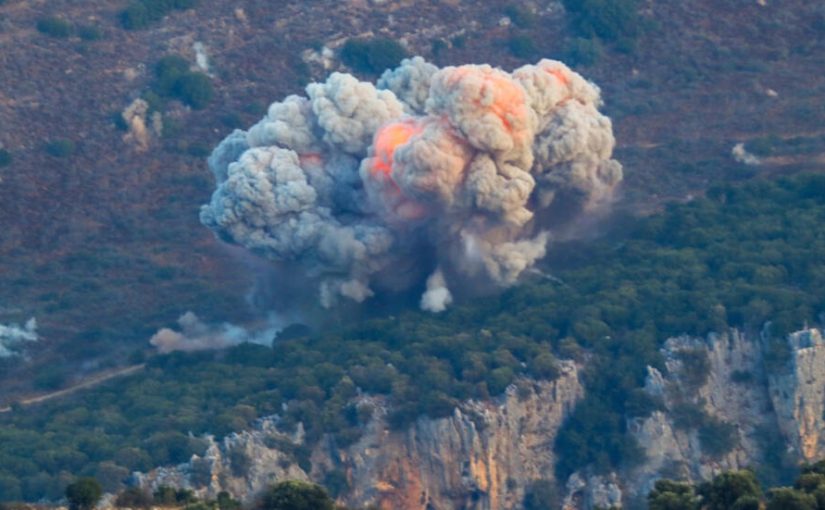The ongoing conflict between Israel and Hezbollah has reached new levels of intensity. Israel’s military launched extensive strikes on southern and eastern Lebanon on Monday, targeting Hezbollah positions. Rear Admiral Daniel Hagari, the Israeli military spokesman, issued a rare public appeal to Lebanese civilians, urging them to evacuate potential Hezbollah-targeted zones for their safety.
The conflict, now approaching a year of tit-for-tat exchanges, shows no signs of de-escalation despite international calls for restraint.
The renewed violence comes as Hezbollah declared its readiness for “all military possibilities” in support of Hamas amid the broader Israel-Gaza war. As Israel intensifies its offensive, Lebanese civilians have been advised to avoid areas linked to Hezbollah, with strikes expected to continue for the near future. Israeli Prime Minister Benjamin Netanyahu emphasized that no nation would tolerate attacks on its civilians, referring to the increasing rocket fire from Lebanon.
The United Nations has raised concerns about Lebanon becoming “another Gaza” as both Israel and Hezbollah engage in one of the most intense exchanges since the outbreak of war with Hamas in October. UN Chief António Guterres noted that neither side seems interested in a ceasefire, while diplomatic efforts by Qatar, Egypt, and the United States to broker a truce in Gaza remain stalled.
Israel’s strikes on Hezbollah strongholds, including a densely populated area in southern Beirut, have caused significant casualties. One of the most impactful attacks killed Ibrahim Aqil, head of Hezbollah’s elite Radwan Force. Hezbollah responded with rocket fire aimed at Israeli military sites and production facilities near Haifa.
International efforts to de-escalate the situation continue, but tensions remain high. Israel’s Defense Minister Yoav Gallant stated that military operations would persist until Israel’s northern communities could safely return to their homes. Meanwhile, U.S. President Joe Biden urged Israel to avoid broader escalation, though Hezbollah continues to retaliate, targeting Israeli cities and military assets.
The Israel-Hezbollah conflict shows no signs of slowing, with both sides committed to military engagements. As civilian casualties mount, international bodies and foreign governments are pushing for a ceasefire, though their efforts have yielded limited results. Hezbollah’s “new phase” in the conflict and Israel’s ongoing strikes suggest that this confrontation may continue to escalate, risking further destabilization of the region.
